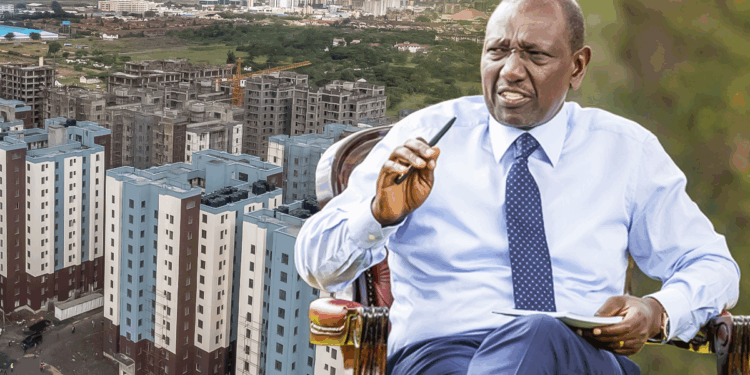Ruto: Government Implementing Programmes to Transform Nairobi into a Modern, Sustainable, and Inclusive City.
President William Ruto has reiterated his administration’s unwavering commitment to transforming Nairobi into a modern, sustainable, and inclusive city through deliberate and multifaceted government interventions. Speaking after attending a church service at the Africa Inland Church in Kibera, the President outlined ongoing efforts aimed at upgrading urban infrastructure, restoring the environment, and improving living conditions for all Nairobians. Joined by Nairobi Governor Johnson Sakaja, Ruto emphasized that the state of Nairobi’s informal settlements and infrastructure is untenable and must be addressed with urgency.
A central focus of the government’s transformation plan is the Affordable Housing Programme. According to the President, 60,000 housing units are under construction across Nairobi County, with 25,000 located in Kibra and Lang’ata constituencies. Last week, he handed over keys to 1,080 new homeowners at the New Mukuru Housing Estate, with another 13,200 houses under construction. These projects form part of the Bottom-Up Economic Transformation Agenda, designed to uplift ordinary citizens by providing decent, affordable homes. The initiative not only offers shelter but also creates employment opportunities, as local artisans and workers are hired during construction.
Beyond housing, the government has earmarked KSh2.1 billion to enhance road infrastructure within the city. The expansion of road networks is intended to improve accessibility, reduce traffic congestion, and spur economic activity. Complementing these developments is the planned establishment of a new fire station in Kibera, on land donated by the national government. This move is part of broader efforts to boost emergency response capacity in densely populated informal settlements prone to fire outbreaks due to illegal electricity connections.
President Ruto also revealed that KSh500 million will be allocated in the next financial year to regularize illegal power connections in Nairobi’s slums. These poorly installed connections have often led to fatal fires and property destruction. Ruto noted that he has already engaged Parliament’s Budget and Appropriations Committee to fast-track this intervention, asserting the need to protect lives and secure households in marginalized communities. He also donated food and household supplies to victims of a recent fire in Kibera and promised government support in paying medical bills for the injured.
In the education sector, the President affirmed that the government is upgrading school facilities across Nairobi, including the construction of thousands of new classrooms. Personally, Ruto is sponsoring the building of 240 classrooms within the county. Furthermore, he announced that 24,000 new teachers will be hired in the next financial year, adding to the 76,000 educators already employed over the past two years. These measures aim to ensure that every child receives quality education in a conducive learning environment.
Environmental restoration also features prominently in the city’s transformation strategy. The Nairobi River Basin Regeneration Programme, which currently employs 20,000 youths to clean the city’s three main rivers, will be expanded to offer over 50,000 job opportunities. This project not only addresses ecological degradation but also provides a livelihood for many jobless youth, contributing to broader social and economic inclusion.
The President encouraged Kenyans to register for the Social Health Authority, underlining that quality healthcare is now a constitutional right for all, not a privilege for the wealthy. By enhancing access to health services and addressing health disparities, the government seeks to build a more equitable society. These efforts are in line with Ruto’s vision of equity and inclusivity, where “lifting those who are down” is not seen as a disservice to those who are already privileged.
While opposition leaders continue to sow seeds of disunity through divisive rhetoric, President Ruto affirmed that his administration is focused on fulfilling its manifesto. He stated that a broad-based and united government will fast-track national development and deliver tangible outcomes to all Kenyans. Despite the political noise, he maintained that the government’s deliberate programmes in housing, job creation, education, and infrastructure are already reshaping the lives of citizens and setting Nairobi on a path to sustainable transformation.










